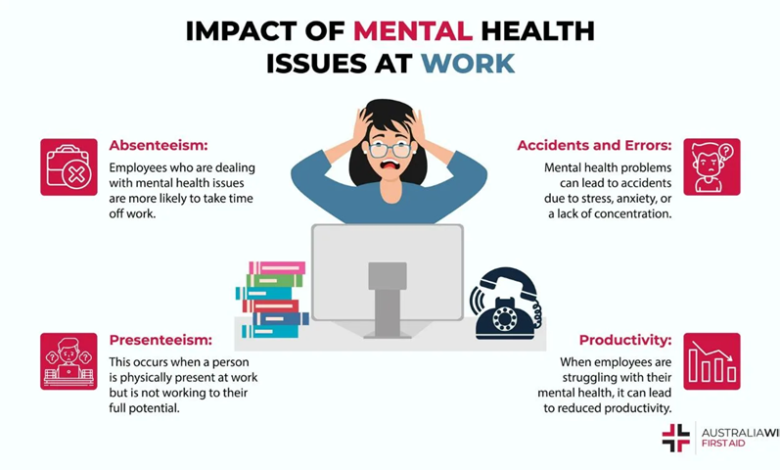Modern day working people more likely to have a mental health problem

News Mania Desk/ Piyal Chatterjee / 19th September 2024
An average person works 90,000 hours at a job during their lifetime. That’s a long period of time. You might find enjoyment or self-fulfillment in your career. However, it can also lead to major problems with mental health. In order to remain productive at work, it’s critical to understand how to handle mental health difficulties related to your job.
Poor working conditions, for example, might have a detrimental effect on employee morale. In the end, this results in stress-inducing frustrations including poor communication, health problems, and subpar work performance.Workplace stress-related poor mental health can lead to a number of major medical issues, including diabetes, hypertension, and other cardiac disorders.
The following are a few factors that could negatively impact your mental health at work:
- An excessive workload may lead to burnout in workers. One of the most common causes of mental health issues in the job is burnout, or tiredness. Making significant contributions in both your personal and professional life may be greatly hampered by it. Workers that are burned out cannot perform well. For the employer, this can entail losses or decreased profits. Numerous businesses set aside money to support their staff members’ mental health care.
- The constant drive to increase income eventually has an impact on one’s mental state. Mental illnesses like anxiety and sadness are more common in workers who are overworked and underpaid.
- For many people, mental health is still a sensitive subject. Few people feel comfortable confiding in their coworkers about their personal mental health issues.
Stress at work may also be the root of a variety of mental health problems, such as:
- Anxiety disorders are prevalent in society. About 18% of adults in America suffer from anxiety. It manifests as weariness, restlessness, trouble focusing, and excessive concern at work. Your capacity to perform at your peak is compromised by these symptoms.Anxiety at work has various reasons. Among these include unsatisfactory interactions with coworkers, subpar work output, and meeting deadlines. Anxiety disorders can seriously hinder your ability to work. You may even decline possibilities for career progress due to anxiety.
- Depression can occur in any employment, depending on the workplace and the amount of assistance offered. A toxic work environment, job instability, a lack of balance between work and family life, and overwork are some of the most prevalent factors contributing to depression in the context of employment.
Your capacity to make decisions, organize your schedule, do physical work, engage in social relationships, and communicate may all be impacted by depression. Early diagnosis is essential for effective treatment of depression.
Asking for assistance from a professional and other loved ones is advised by experts when dealing with a mental health condition that is connected to your job. The majority of businesses offer employee support programs.
Speak with your doctor if you believe you require more assistance than what your company offers. Many therapeutic modalities can be used to treat mental health issues. Your physician might advise medication or suggest other treatments, such as psychotherapy.






